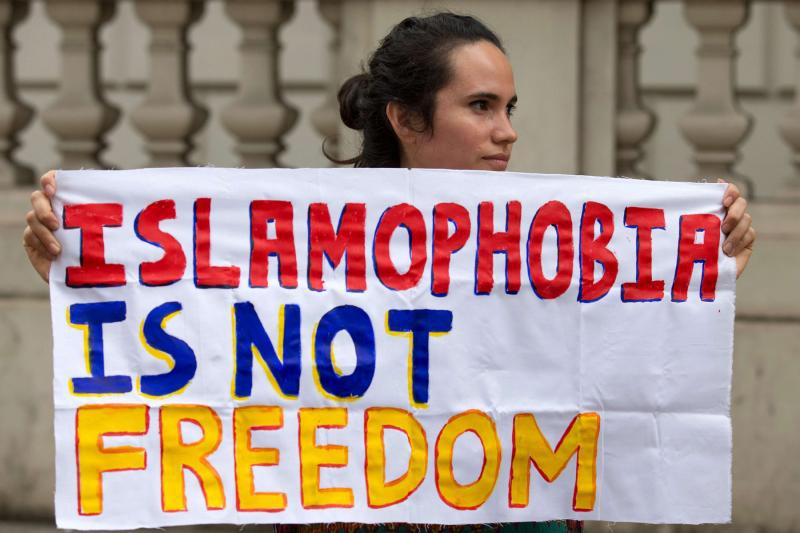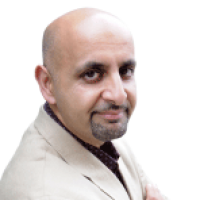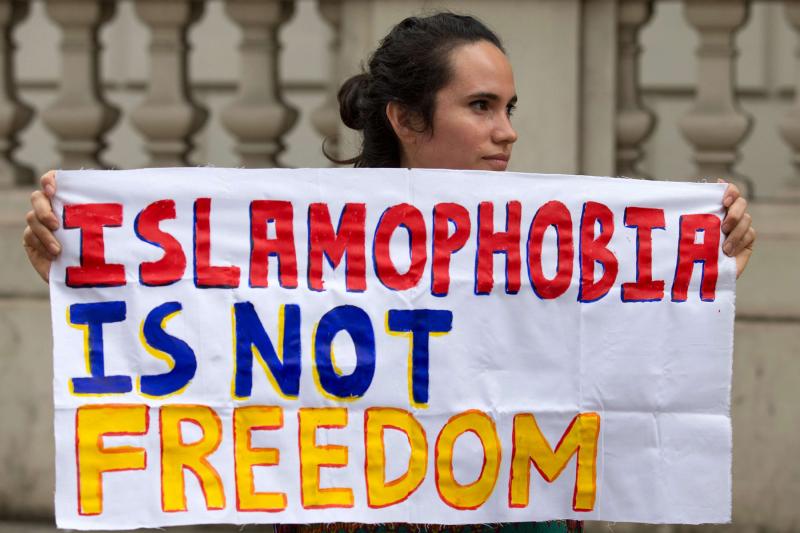The importance of defining Islamophobia in the UK
There is an old English phrase that goes like this: You wait ages for a bus and along come three at the same time. Recently, reports and surveys on Islamophobia have been a bit like buses.
In the last few weeks, two reports have moved on what is often a divisive conversation. They’ve asked serious questions about the growth of anti-Muslim hatred. On November 27, a cross-party group of British members of parliament issued a report on the growth of Islamophobia in the United Kingdom. Nothing unusual about that except that it defined “Islamophobia.”
The report said: “Islamophobia is rooted in racism and is a type of racism that targets expressions of Muslimness or perceived Muslimness.”
That definition is important. It roots Islamophobia in a framework of racism rather than letting it drift, as it has over the past few years. The drift has made for a conversation with which many on the far right of politics have disagreed. It has led to accusations that Muslims had invented a word to stifle “legitimate” criticism of their faith or the actions of their co-religionists.
With attacks against Muslims increasing across many Western countries, whether in print or physically on the streets, the attempt to diminish what is happening has disheartened many Muslims. They have questioned why other groups can be protected but not Muslims when a violent attempt to pull off the hijab of a woman on the street is obviously an attack on who they are rather than some legitimate criticism of the Muslim faith.
The British cross-party parliamentary group spent months talking to people and collating data on the rise of physical attacks against Muslims. Sadly, the growth is a worldwide trend.
We can have a conversation about non-Muslim anger relating to terrorism or to migration but a rise in the number of attacks against Muslims has to prompt the following question: How is this anger being fuelled and channelled?
That’s where the recent survey from the Muslim organisation Mend comes in. More than 2,000 members of the British public were surveyed about Islamophobia and their answers should worry us all about the direction in which many societies are headed.
Worryingly, just less than half of those surveyed said they felt it was difficult to be a Muslim today and that Britain was becoming less tolerant of Muslims. There are many who blame that on increasingly hateful rhetoric of nationalist politicians and a media that regularly disseminate negative Muslim-related stories.
The Mend survey also said 60% of respondents, particularly those aged 18-34, blamed the media for the rise in Islamophobia. Once this was a fringe opinion but millennials must see the constant stream of anti-Muslim stories in certain newspapers. They must question the stories, too, because young Britons are more likely to have been in contact with Muslims at work or school, and not recognise all that they read.
For me, however, the most interesting thing to come out of the survey was something linked to the media obsession with Muslims. The number of Muslims in the United Kingdom is around 5% of the population, yet just more than 20% of those surveyed said they thought Muslims composed about 20% of the United Kingdom.
My take is that the media obsession with Muslims means there are many who think they are everywhere.
Of course, I could just be using this data to further an agenda of stifling legitimate criticism but what if I am not?
A few weeks ago, I visited the Auschwitz-Birkenau concentration camp for the first time and had an interesting conversation with a young Polish student named Jacob. He questioned the rhetoric of politicians in his home country about migrants and Muslims and asked where they want all this to end. He suggested those who use and print hateful speech need to visit the camp and see where it could all end.
Some may feel this is an exaggeration but for hatred to make the leap to something so horrific it has to start somewhere. People have to be drip-fed hatred, something that is easy when we have poor literacy worldwide about the religion and beliefs of others.
Jacob clearly felt this was happening again in his own backyard in Poland. That’s why a definition of “Islamophobia” is important. It is not made up and it’s not about stifling criticism of Islam. It is about understanding the fact that hatred of Muslims is a form of racism and should not only be tackled and legislated as such but should lead people to question what exactly is the end point of such hatred.
Aaqil Ahmed, the former head of Religion and Ethics for the BBC, is a professor of media at Bolton University and a consultant in digital media, broadcasting and leadership.
This article was originally published in The Arab Weekly.







